The present Fellowsã Garden was designed in 1947 by Professor Nevill Willmer, a physiologist and Fellow of Clare from 1936 to his death in 2001.
In dividing the Garden into separate sections (some almost like ãroomsã), Willmer was inspired by the great garden of the Arts and Crafts period at Hidcote in Gloucestershire. But his goal was by no means simply imitation; it was also experiment. The Garden brings together two of Willmerãs interests: the landscape painting that he practised as an amateur and the principles of colour vision that he studied as a physiologist.
Thinking pictorially, Willmer conceived of a number of landscape pictures to be seen from different vantage points, such as the west front of the college and the Masterãs Lodge, the bridge over the Cam, or the view from the Avenue through the gate to the Sunken Garden beyond.
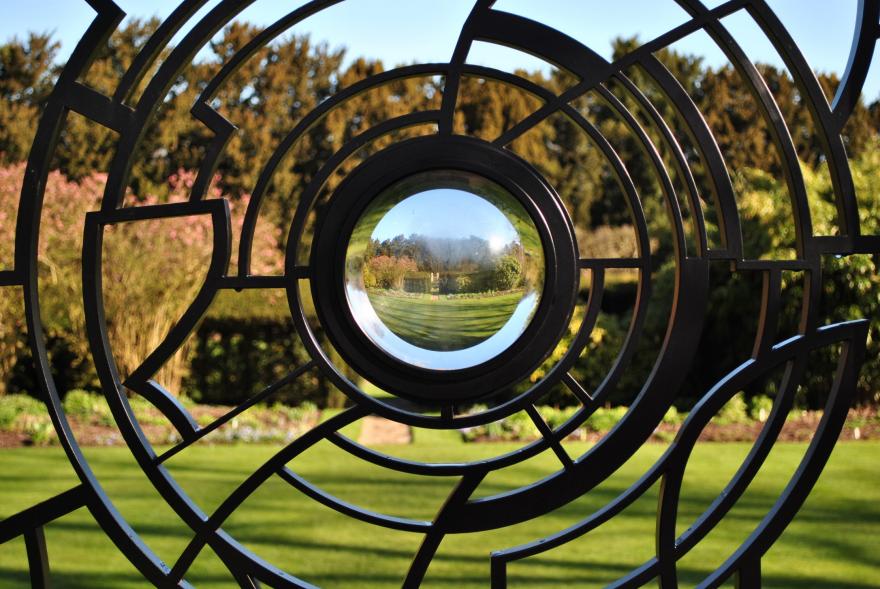
Fellows Garden
Due to the ongoing building work in Old Court, the Fellows Garden is currently closed. We anticipate that it will re-open in 2024.
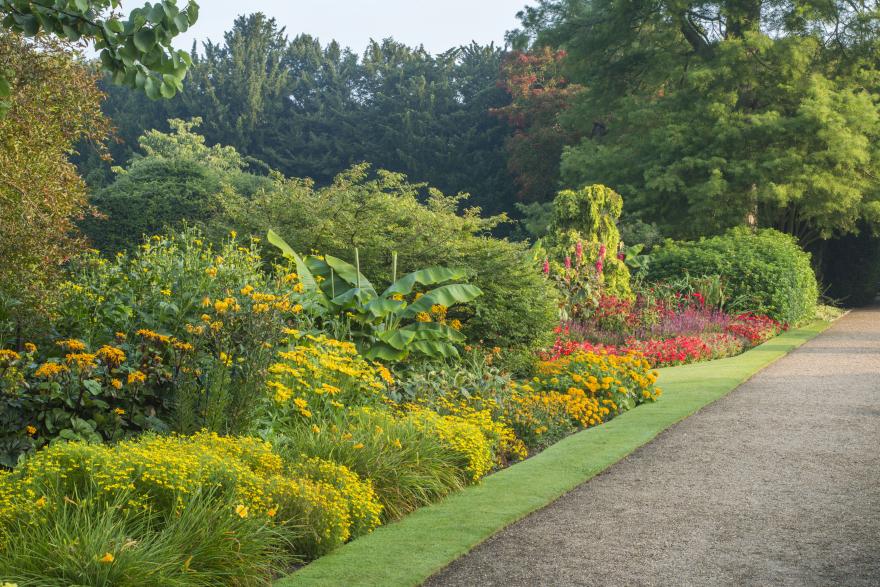
River Beds
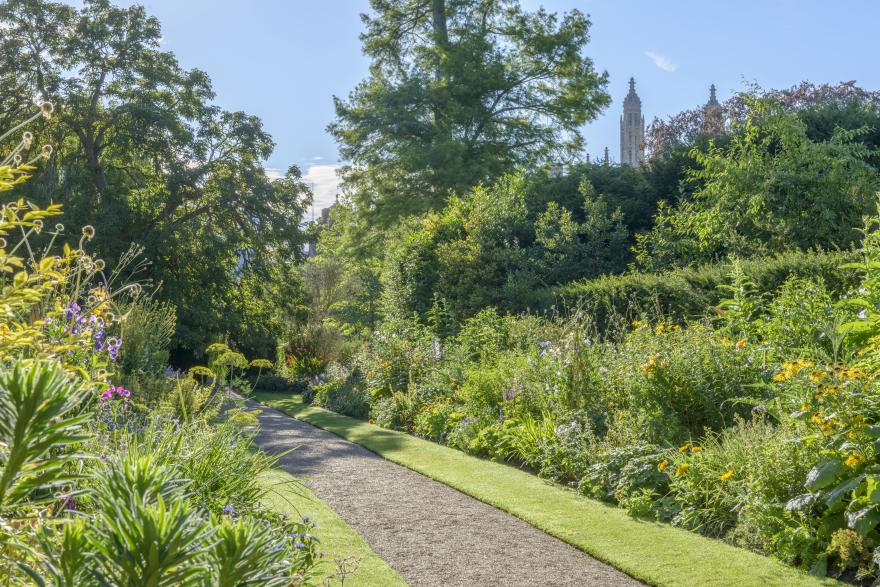
Yellow and Blue Border

Sunken Garden

Tropical Garden
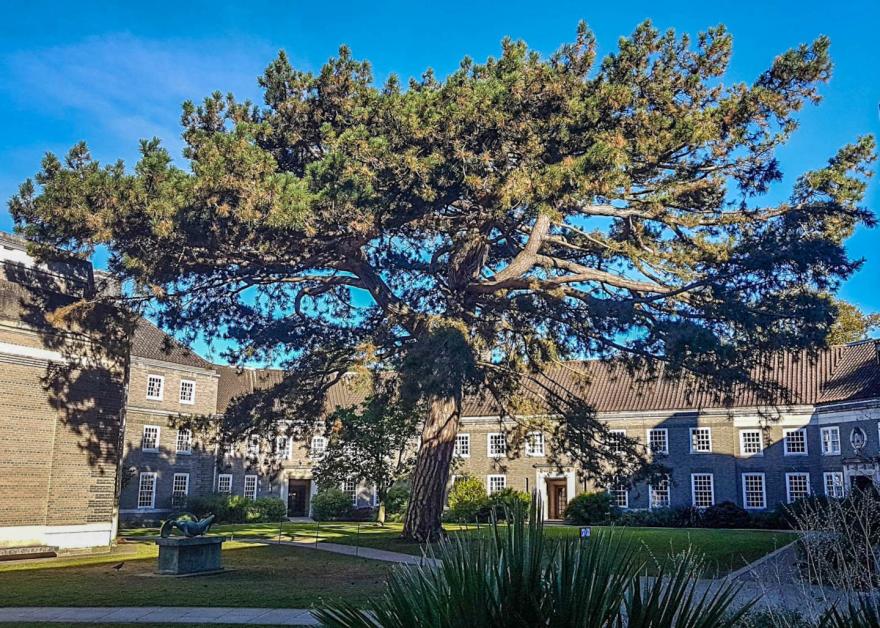
Memorial Court
Two large Pine trees dominate the lawns either side and in 2006 the planting around the edge of the court underwent a much needed redesign. The tired mixed shrub strips were updated and extended by the Head Gardener at the time, Steve Elstub, and his team. The plantings include an array of Cistusã, Miscanthus, Agapanthus, Sedums and Chamaerops humilis ãVulcanoã.
Ashby Court
Castle Court
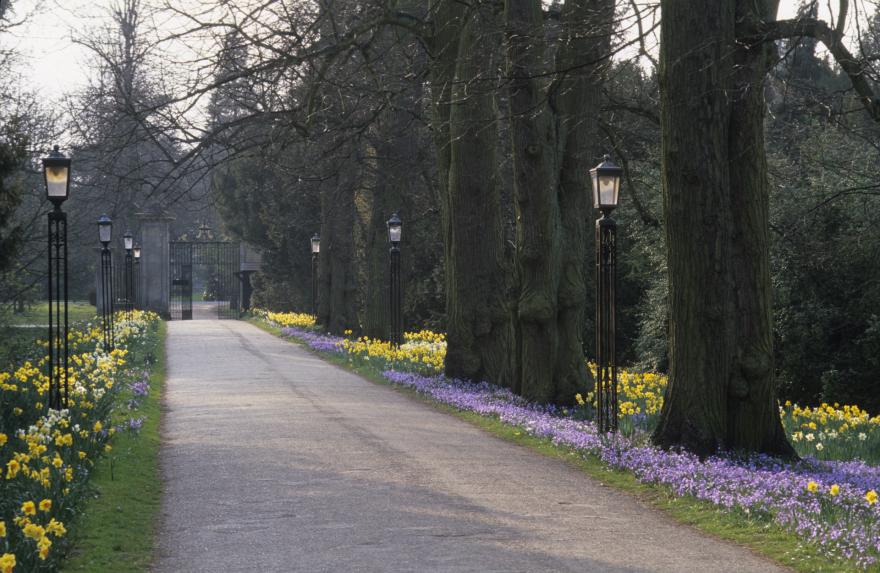
The Avenue
Yellow, white, a dash of blue,
Daffodil, daisy, scylla too.
Iron gates, black and gold,
Clareãs colours wrought in bold.
Our Avenueãs dressed herself for Spring.
Nothing to wear but her very best.
We who walk her in silence sing,
Praising her beauty, being blessed.
- Terence Moore
Our Avenue, Late Spring
That Spring dressã all tattered and torn,
Scruffy, bedraggled, withered and worn.
Gone the yellow, the white, the dash of blue,
Till Summer comes undress must do.
Our Avenue must bear Natureãs pace.
We who love you in patience wait.
Waiting whilst you re-grow your grace,
Hoping Summerãs sun will it re-create.
- Terence Moore

